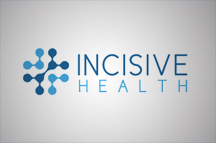What might you have missed on Twitter? Here are some of the highlights we spotted from the world of health over the past seven days.
- Taxes or top ups? Last week saw more debate on charging. We were reminded of this by Andy Cowper. We also liked this by Julian Le Grand.
- It’s the patient that matters, remember? A timely reminder from Mark Flannagan that debates about access to treatments should have the patient at the centre.
- Great data blog from Public Health England on trends in teenage pregnancy in London.
- The accelerating impact of Ebola.
- Why patients hate to bother doctors and the role of shame. A must read for anyone trying to improve patient experience.
- Bill Morgan led a workshop for Positively UK working with politicians. You can read about it here.
- How often do different nationalities go to the doctor?
- Don’t lie, don’t pry, don’t cheat, can’t delete, don’t steal, don’t reveal. Advice for doctors on social media.
From America:
- What happens when doctors own their equipment? The example of US radiotherapy suggests it might skew clinical practice.
- The White House is asking for suggestions for the Strategy for American Innovation.
- A US perspective in the New England Journal of Medicine on the QALY threshold and how we may need a more flexible measure.
- Sex vs death. The complicated trade-offs in prostate cancer treatment, from the perspective of a Clinical Nurse Specialist.
And finally…
- Learn your surgical terms.
Incisive Health is the new force in health policy and communications. In an NHS environment that is noisy, changing rapidly and where decision-makers are under intense pressure, policy communications need to be incisive to make an impact. We know how to cut through the noise and competing priorities to deliver results that enhance our clients' businesses and reputations and – ultimately – improve healthcare for patients.












